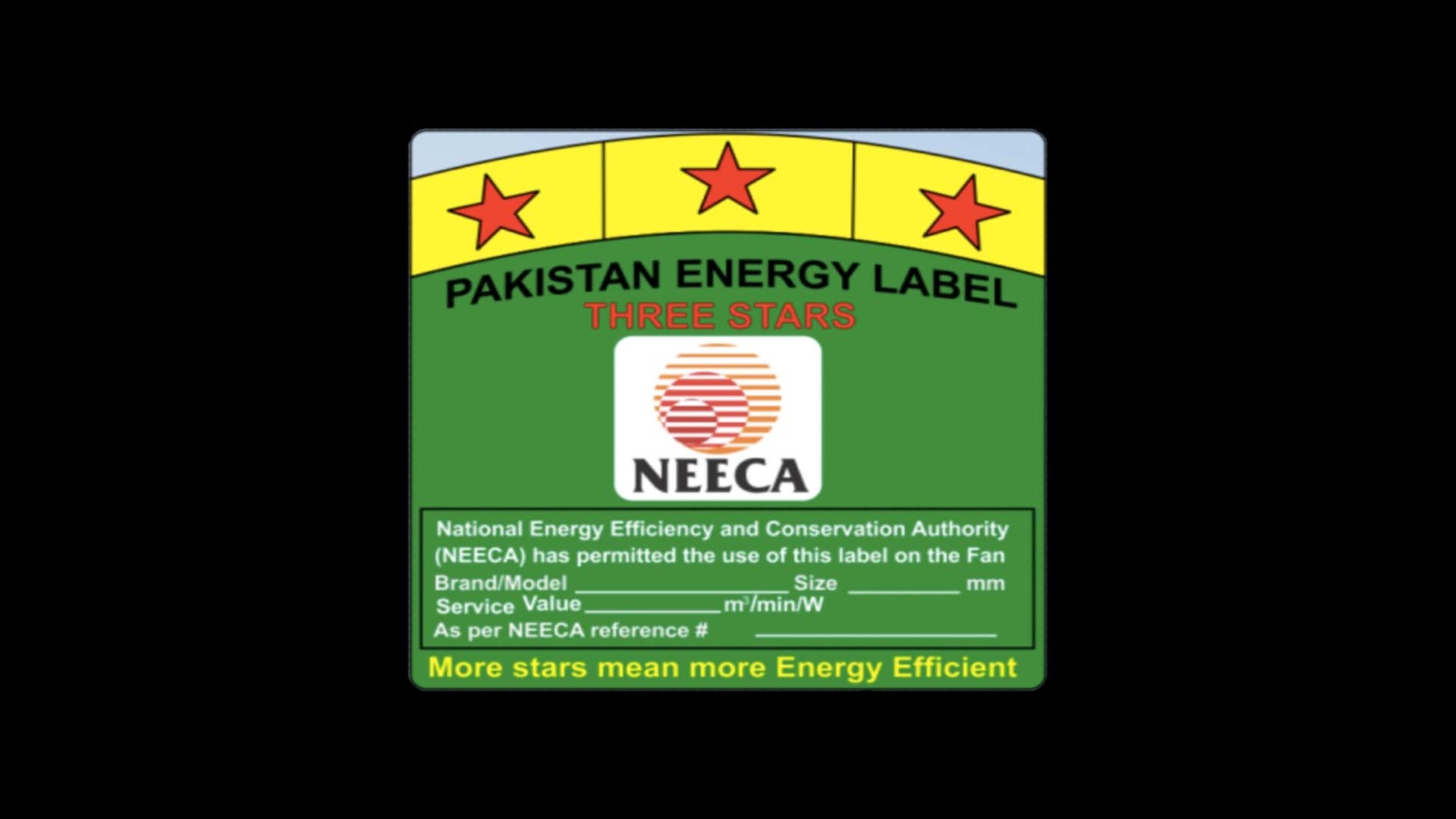Supporting More Efficient Energy Use in Pakistan
During much of the twenty-first century, Pakistan has faced a severe energy crisis with frequent forced electricity shortages ranging from 8-12 hours per day in urban areas and up to 18 hours per day in rural areas. While the government has rapidly expanded national generating capacity, the supply of gas has become an increasing problem. Increasing energy efficiency to reduce demand therefore remains a priority.
CLASP has supported efforts to improve product energy efficiency in Pakistan since 2016 through support to the National Energy Efficiency & Conservation Authority (NEECA) and, more recently, to the Pakistan Standards and Quality Control Authority (PSQCA).
Working with our local partner, SAMA^Verte, CLASP is providing technical assistance at both the national and provincial levels to support energy efficiency improvements and national climate commitments, while simultaneously delivering energy and cost-savings to consumers, commerce, industry, and the public sector.
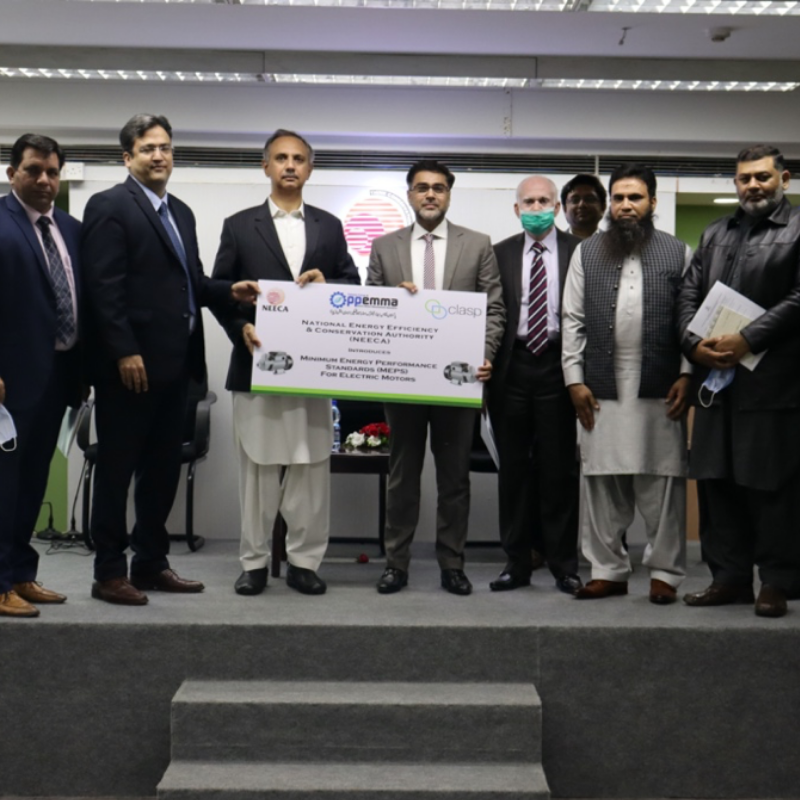
Energy efficiency and conservation is one of the most important components of overall energy management within any country and has become a high priority for us.Mr Omar Ayub Khan
Former Pakistan Minister of Energy, at the launch of the Motor Efficiency Policy Workshop in Islamabad – December 2020
Key Areas of Activity
National Energy Efficiency Support
Our team is working with the NEECA and PSQCA to develop energy efficiency policies for high-impact products and to support the development of effective compliance mechanisms. The NEECA Strategic Plan 2020-2023 recognizes CLASP support.
NEECA will contribute approximately 6.5% of the total emission reduction of Pakistan’s target by 2025.
Supporting Development of National Energy Efficiency Policies
The rapid growth of the Pakistan economy is increasing energy consumption across all sectors. While government actions have expanded electricity generation to meet the growing need, inefficient use of energy is unnecessarily raising costs for industry and commerce and placing additional cost burdens on consumers – many of whom already struggle to cope.
CLASP and SAMA^Verte are working with NEECA and PSQCA to develop policies that will cost-effectively raise efficiency levels of products.
CLASP supported NEECA in the development and introduction of Pakistan’s first voluntary energy label for fans, and the subsequent development of Minimum Energy Performance Standards (MEPS) and the energy label for electric motors.
The team is now working with both NEECA and PSQCA to develop MEPS and energy labels for:
- Gas storage, gas instantaneous, and electric water heaters
- Commercial display cabinets (visi coolers and ice freezers)
- And other products, to be determined
The team is also providing technical assistance towards developing compliance mechanisms to enhance the integrity of NEECA’s energy efficiency policies. CLASP’s institutional support to NEECA includes building capacity of NEECA professionals, technical assistance for testing laboratories, and advising on policy implementation and development of the national product registration system.
Provincial Energy Efficiency Support
Since 2016, we have worked with the Punjab Energy Efficiency & Conservation Agency (PEECA) to develop energy efficiency strategies at the provincial level and to support national market transformation activities.
Energy efficient product procurement can result in an estimated 2 million tonnes of CO₂ reductions by 2030.
Transforming Provincial Markets Through Procurement Policies and Institutional Capacity Building
CLASP and SAMA^Verte are collaborating with PEECA to develop impactful procurement specifications for the most energy consuming products purchased by the Punjab government, which is responsible for almost 50% of the procurement done by the government as a whole. The resulting procurement plan will stimulate demand for energy efficient products, demonstrate the government’s commitment to realizing its goals, and prevent an estimated 2 million tonnes of CO₂ by 2030. CLASP is also building technical capacity on energy efficiency policies within PEECA.
National Cooling Efficiency Support
With support from the Clean Cooling Collaborative (formally Kigali Cooling Efficiency Program or K-CEP), CLASP, SAMA^Verte, and WWF Pakistan are supporting the Ministry of Climate Change (MoCC) to develop a Pakistan Cooling Action Plan (PCAP). The PCAP will assess national cooling needs, as well as define a path to mitigate cooling GHG emissions and expand sustainable cooling access to off-grid and weak-grid communities. The development of the PCAP has been prioritized in Pakistan’s revised Nationally Determined Contributions (NDC) 2021 submitted by the MoCC to the UNFCCC secretariat.
Pakistan currently ranks fifth in the world for highest cooling demand.
Pakistan Cooling Action Plan to Expand Cooling Access and Lower CO₂ Emissions
Our team is working to reduce carbon emissions associated with cooling products, facilitate achievement of product-related cooling commitments in Pakistan’s revised NDC submission, and expand access to cooling in off- and weak-grid communities. We will:
- Develop a Pakistan Cooling Action Plan (PCAP) that identifies key cooling needs and prioritizes actions for addressing current and future cooling demands with the minimum possible impact on the environment. The revised Pakistan NDC 2021 includes the policy action: ‘Developing a Pakistan Cooling Action Plan (PCAP) which will identify the key cooling needs and prioritize actions for addressing current and future cooling demands with the minimum possible impact on the environment’.
- Propose cooling efficiency policies for on- and off-grid domestic and commercial products.
- Prepare provincial procurement specifications for the Government of Punjab for high efficiency (and high quality) products, such as air conditioners.
- Build strengthened institutional capacities of government institutions to implement and enforce cooling efficiency policies.
- Inaugural Pakistan Cooling Action Plan (PCAP) Working Group Meeting – 21 December 2021. Key stakeholders from the cooling sector participated at this event, including government and private sector representatives.
- 1st PCAP Working Group Meeting – 14 October 2022. Stakeholders met to discuss the Cooling Needs Assessment and define the scope, priorities, and their respective responsibilities. The PCAP would be emphasized during the upcoming COP27 and prioritized within the Government of Pakistan’s environmental agenda.
More information is available for download below:
Download CLASP’s Clean Cooling Collaborative Pakistan Project 2-Pager.
Pakistan’s revised NDC now includes the PCAP – see CLASP’s Press Release
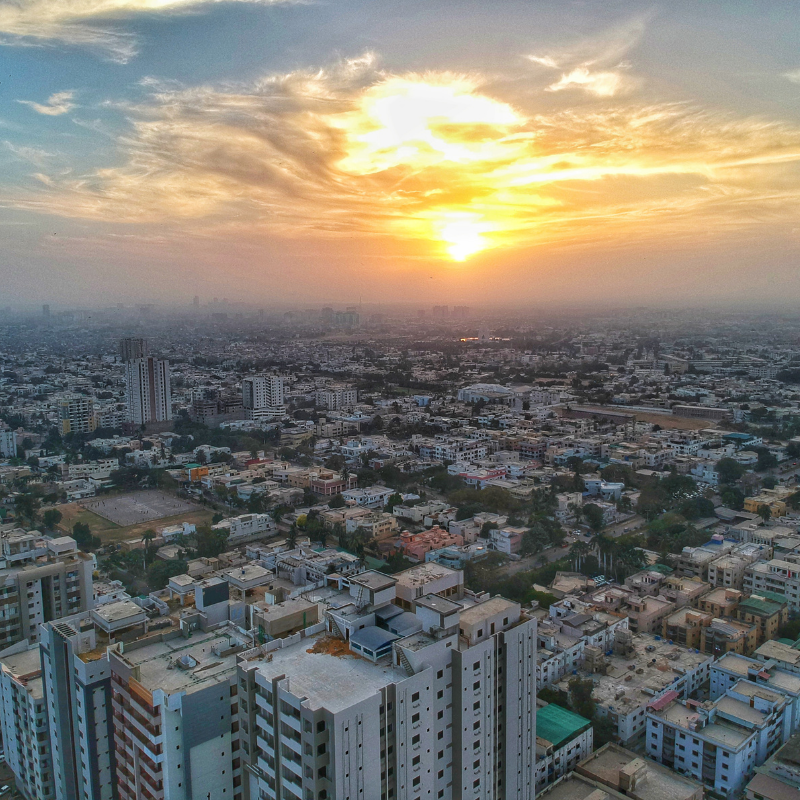
CLASP’s policy interventions in Pakistan could lead to at least 20 Mt CO₂ reduction by 2030.
Targeting Priority Products
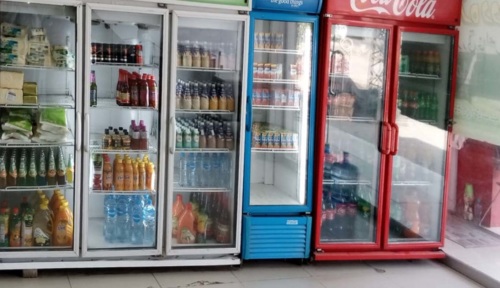
MEPS and Labels for Cold Chain Appliances
CLASP and SAMA^Verte worked together with NEECA and PSQCA to develop the first national MEPS and energy labels for commercial glass-fronted beverage coolers (known as visi coolers) in March 2022. The team is now focused on domestic and commercial horizontal cooling cabinets.
Introducing policies for commercial and domestic cooling appliances would result in a cumulative reduction of over 10 TWh, 4 Mt of CO₂, and PKR 248 billion ($1.24 billion USD) by 2030.
CLASP Supports National Efficiency Policy for Visi Coolers and Horizontal Cooling Cabinets
Today there are an estimated 1.4 million visi coolers, 2 million domestic chest cabinets (fridge-freezer and freezer only units) and 0.35 million commercial chest beverage refrigeration units in Pakistan. The number of these refrigerated units has been steadily increasing and that trend is expected to continue in coming years, with a projected growth of over 5% annually. Because of the high ambient temperatures for much of the year, and associated energy use, there is significant potential for energy, carbon, and cost reductions with proper policy intervention.
Approximately 90% of visi and beverage cooler purchases are made by large beverage and food companies, mostly international. Although they purchase the units, these companies are not responsible for the electric bills of the shops where their drinks and frozen products are displayed and sold. Consequently, energy consumption of these products has not been a priority until recently. The domestic market is significantly large with over 225,000 units produced for this segment every year.
NEECA, PSQCA and CLASP are working together to introduce the first energy efficiency policies for horizontal cooling cabinets, following CLASP’s completion of the visi policy work.
National Policy Developments
Horizontal Cooling Cabinets
Work on three types of horizontal cooling cabinets — side-by-side fridge/freezers, freezers, and beverage coolers — is ongoing and the first stake holder workshop was held in Lahore on the 28 June 2022.
- 1st Horizontal Cooling Cabinets Stakeholder Workshop Meeting – 28 June, hosted by CLASP and NEECA. Stakeholders came to agreement on core principles for the MEPS, including regulation standards, long-term goals and comparability to visi cooler standards.
Visi Coolers
Three stakeholder engagement workshops were held during the visi regulatory development process. We tested several visi products to collect real-time data on their energy consumption and performance, which informed the final policy proposals.
CLASP submitted the final policy proposals to NEECA and PSQCA for their consideration and approval on 25 February. If adopted as is, projected electricity costs savings to shopkeepers will total over PKR 160 billion ($900 million) by 2030. This equates to approximately 7.3 TWh saving in electricity, and 2.9 million tonnes of CO₂ emissions avoided.
- 1st Visi Cooler Stakeholder Workshop Meeting – 9 November 2021, hosted by CLASP and WWF. Visi cooler buyers were briefed on international energy efficiency policy best practice, and voiced support for new national policies.
- 2nd Visi Cooler Stakeholder Workshop Meeting – 17 November 2021. National visi cooler stakeholders were presented with international approaches to beverage cooler efficiency, and MEPS and label options and their potential impacts.
- 3rd Visi Cooler Stakeholder Workshop Meeting – 15 February 2022. The team presented the final draft MEPS, label, and test method for consultation with national visi cooler stakeholders.
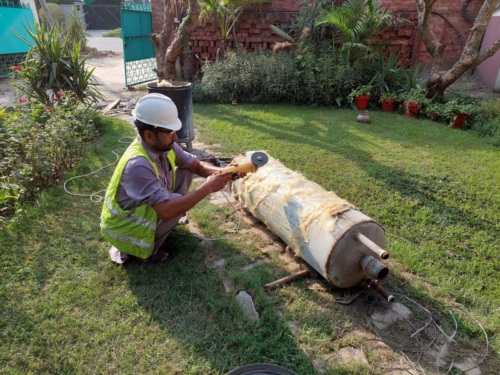
MEPS and Labels for Water Heaters
CLASP and SAMA^Verte are working with NEECA and PSQCA to update the first national MEPS and energy labels for a range of gas and electric water heaters.
Policies for water heaters can increase the efficiency of over 5 million units entering the market. CLASP’s proposed MEPS would result in a cumulative reduction of 16.8 Mt of CO₂ and PKR 124.5 billion ($711 million) consumer savings by 2030.
CLASP Supports National Efficiency Policy for Gas Storage, Gas Instantaneous, and Electric Water Heaters
The water heater market in Pakistan continues to grow, making appliance energy efficiency increasingly more important. Gas storage water heaters have been regulated for a number of years and currently comprise most of the national market. These products are increasingly being replaced with smaller unregulated instantaneous gas heaters. As the availability of gas decreases, the prevalence of unregulated electric water heaters will also rise. The growing number of gas heaters will continue to strain an already unstable methane supply in Pakistan, making any reduction in consumption a valuable contribution.
Gas storage, instantaneous, and electric water heaters provide substantial potential for energy, cost, and carbon emission reductions.
CLASP and SAMA^Verte proposed to PSQCA and NEECA to update the existing test method for gas storage water heaters and to bring all three prominent technologies up to international efficiency standards. By adopting our proposed policies, Pakistan would have had the potential to reduce their energy consumption by over 15 TWh, gas use by close to 50,000 MMCF, and CO₂ emissions by over 16 Mt.
National Policy Developments:
CLASP and SAMA^Verte convened four stakeholder engagement workshops between September and March 2022 to discuss the water heater market and technologies, as well as potential policies.
On 15 November, the team submitted proposed MEPS and test methods for gas storage and instantaneous water heaters to PSQCA and NEECA with the estimated reductions in GHG emissions, gas consumption, and consumer costs. The Ministerial Working Group considered our proposals and adopted a revised policy for gas storage water heaters, which has been approved and can be accessed on the PSQCA website.
CLASP has since been working with NEECA, PSQCA, and industry to set impactful labelling and MEPS requirements for gas instantaneous and electric water heaters.
More information from the stakeholder workshops is available for download.
- 1st Water Heater Stakeholder Workshop Meeting – 23 September. Major manufacturers were briefed on potential energy, cost, and emission reductions based on experiences and technologies in international markets, and voiced interest in strengthening national water heater policies.
- 2nd Water Heater Stakeholder Workshop Meeting – 4 October. National manufacturers, the gas utility, and PSQCA were presented with international approaches to water heater efficiency, potential impacts and policy approaches in Pakistan.
- 3rd Water Heater Stakeholder Workshop Meeting – 5 November. Manufacturers and the members of the Ministerial Working Group were presented with an initial proposal for gas storage and gas instantaneous MEPS.
- 4th Water Heater Stakeholder Workshop Meeting – 2 March 2022. Manufacturers and the members of the Ministerial Working Group were presented with test standards, MEPS, and label policy proposals for gas instantaneous and electric water heaters.
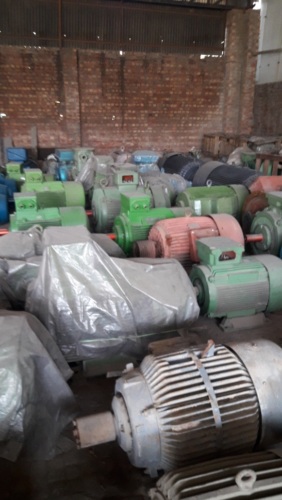
MEPS and Labels for Electric Motors
NEECA announced the country’s first mandatory energy efficiency policy for electric motors in December 2020. Electric motors are primarily used to drive pumps, fans, compressors, and a range of other domestic, commercial, and industrial products.
Implementation of the policy will avoid a cumulative 23.6 Mt of CO₂ and PKR 950 billion ($6.3 billion) in consumer costs by 2030.
CLASP Supports National Efficiency Policy for Electric Motors
Electric motor use is growing rapidly across the economy with the number of installations expected to rise from 14 million to 25 million in the coming decade, resulting in a 60% increase in electricity consumption. Efficient motors, in addition to cutting electricity demand, have the potential to support Pakistan’s 2021 NDC.
From 2019 to 2020, at the request of NEECA, CLASP and SAMA^Verte quantified the national electric motors market in Pakistan and recommended policy options that would curb environmental impacts and protect local economies. In practice, the team found that the adoption of the world’s best efficiency policy for electric motors would negatively impact the 400 or so local manufacturers in Gujranwala, who have little to no capacity to meet such stringent requirements.
Consequently, after extensive consultation with policymakers and the industry association, the proposed policy first regulates larger motors (i.e., those above 5kW) that use 70% of the annual energy consumed by motors nationally, yet only represent 3% of local production. However, at the suggestion of local manufacturers, the scope of the regulations was subsequently expanded to include motors down to 160W—providing a mechanism to independently demonstrate product performance, thus opening potentially lucrative export markets. In potentially a world first, the policy also regulates secondhand motors.
The policy will increase in stringency every two years, providing adequate time for both manufacturers and NEECA to build capacity for meeting the new requirements. CLASP will continue to provide support to NEECA on policy implementation and the development of an online registration platform.
Motor models must be registered with NEECA and comply with specific labelling and information requirements before they can be sold in the market. In parallel, voluntary registration of refurbished second hand motors should begin in 2021 based on a practical “deemed efficiency” model, with this voluntary program transitioning to compulsory registration and minimum performance requirements in 2023. The original timelines have been slightly delayed awaiting finalization of registration infrastructure.
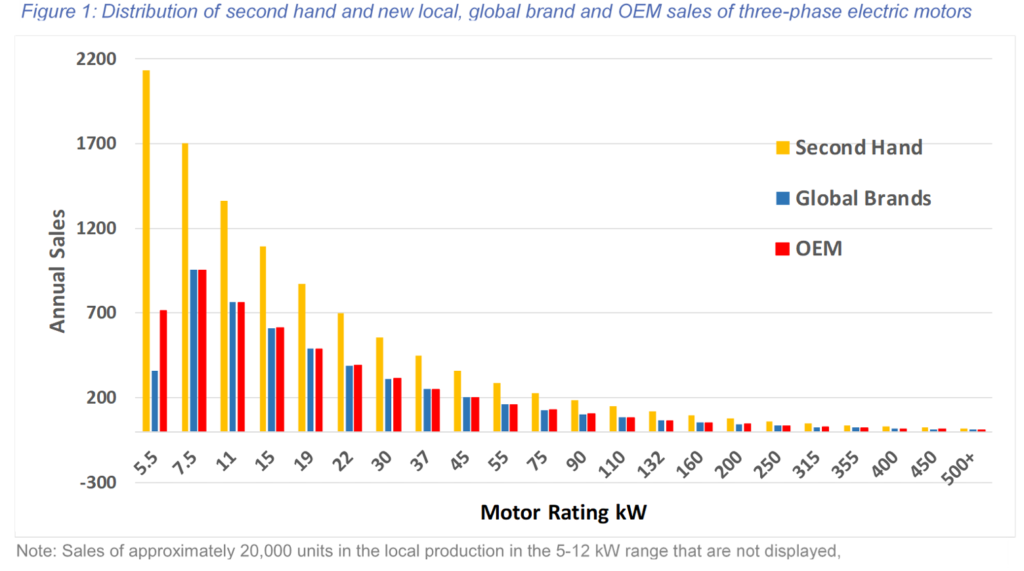
By 2030, implementation of the motor standards and label will yield an annual electricity reduction of 4.5 TWh and corresponding consumer cost savings of PKR 89.3 billion (US$600 million)—corresponding to a peak load reduction of 460 MW, and a 2.2 Mt CO₂ emissions reduction. Cumulatively over the 2021-2030 period, reductions would be 37 TWh, PKR 740 billion ($5 billion USD) and 18.5 Mt CO₂.
More information is available here:
- Lowering Energy Consumption and CO₂ Emissions from Electric Motors in Pakistan Through Efficiency Policy, September 2020 – This report quantifies the current status of the motor market in Pakistan, the potential impact of introducing a policy that initially only regulates large motors, and the practicality of doing so.
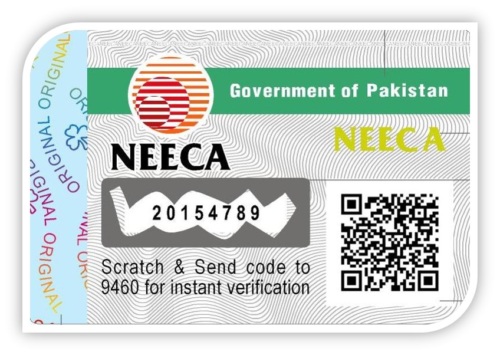
MEPS and Labels for Fans
In 2016, CLASP supported the development and launch of Pakistan’s first-ever voluntary labeling program for ceiling fans.
Over 500,000 energy labelled fans have been sold in the market which, by 2030 will have resulted in a cumulative savings in energy of 491GWh, 335,000 tonnes of CO₂ and PKR 12.5 billion (US $70m).
CLASP Supports First Voluntary Energy Label for Ceiling Fans
In Pakistan, where fans are the primary cooling appliance, the sweltering summer months exacerbate peak energy demand—over 20 million Pakistanis have no access to the grid, and an additional 75 million suffer 12 hours or more of load-shedding daily (i.e., no power).
Together with SAMA^Verte, CLASP spearheaded a major government bulk procurement and fan replacement program now being funded by the World Bank that jettisoned inefficient, energy-intensive fans with high-efficiency models in government health and education facilities. The team also provided institutional support to NEECA to develop an extensive compliance strategy for the fans policy.
Since the launch of the initiative, over 20 large and medium-sized fan manufacturers have registered their models under the voluntary scheme and over 500,000 energy labelled fans have been sold in the market. By 2030, the purchase of these efficient fans will result in cumulative savings in energy of 491GWh, 335,000 tonnes of CO₂ and $70m.
More information is available here for download:
Creating Markets for Energy Efficient Fans in Pakistan
The Pakistan Project Team
CLASP leads the energy efficiency policy work in Pakistan, in collaboration with:
SAMA^Verte, a social enterprise firm in Pakistan, implementing various energy efficiency projects. CLASP’s partners on the ground, managing day to day activities and stakeholder engagements on the PCAP, energy efficiency policy development, and capacity building.
WWF – Pakistan is the largest environment nonprofit organization in Pakistan. WWF assisted the Government of Pakistan with revisions to the NDC and is supporting CLASP and SAMA^Verte on stakeholder engagement for the PCAP development and efficiency policies.
The Pakistan project team key contacts:
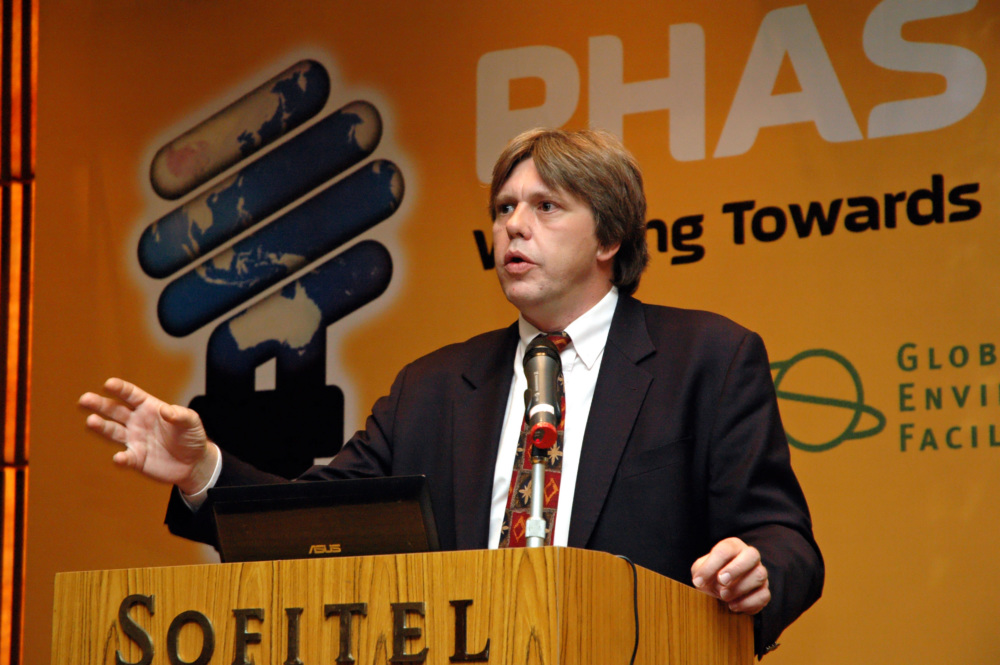
Stuart Jeffcott
Team Leader
Location: France
Stuart has 30 years’ experience of developing product policy in regions spanning Europe, Asia, and Australasia

Ali Habib
National Project Manager
Location: Lahore, Pakistan
Managing Partner SAMA^Verte with over 30 years’ experience in environment and clean energy
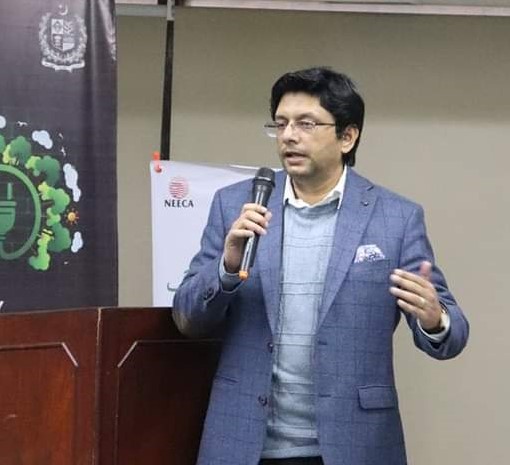
Salman Zaffar
Technical Expert
Location: Islamabad and Lahore, Pakistan
General Manager at SAMA^Verte with over 20 years’ experience in finance and clean energy

Amna Shahab
PCAP Lead
Location: Lahore, Pakistan
Amna is an Environmental economist with over 17 years of experience in environment and climate change
For questions or comments, please contact Ali Hassan Habib at a.habib@samaverte.com

